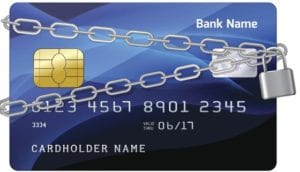In an era where financial markets are increasingly complex, and the landscape of risks continues to evolve, the demand for financial risk specialists has surged. These professionals stand at the forefront of protecting and guiding organizations through the financial uncertainties that could undermine their stability and growth. The path to becoming a certified financial risk specialist is marked by rigorous training, extensive learning, and a deep commitment to mastering the nuances of risk management. Among the certifications available, the Certified Risk Specialist (CRS) certification offered by BankersHub emerges as a beacon for those aspiring to excel in this critical field.
What is a Financial Risk Specialist?
A financial risk specialist is a professional with expertise in identifying, assessing, and managing financial risk within organizations. These individuals are pivotal in ensuring companies navigate the complex and ever-evolving financial landscape safely and effectively. Their role encompasses a wide range of responsibilities, from conducting detailed risk assessments to developing comprehensive risk management strategies that align with an organization’s objectives and regulatory requirements.
The Importance of a Risk Specialist Certification
In the world of finance, certifications serve as a benchmark of professionalism and expertise. A risk specialist certification, in particular, signals to employers, peers, and the industry at large that the holder possesses a deep understanding of risk management principles, methodologies, and best practices. This certification is not just a testament to the individual’s dedication to their profession but also to their commitment to maintaining the highest standards of risk management. With BankersHub’s Certified Risk Specialist certification, you can open doors to new career opportunities, enhance professional credibility, and join an elite community of risk management experts.
What Does a Financial Risk Specialist Do?
Financial risk specialists play a critical role in protecting the financial health of organizations. They identify potential risks that could affect the financial stability and performance of the organization, such as market volatility, credit risk, operational failures, and compliance lapses. By evaluating the likelihood and potential impact of these risks, they help devise strategies and measures to mitigate them. Their work ensures that the organization can pursue its goals while minimizing financial exposure and maximizing opportunities for growth.
How to Become Certified as a Financial Risk Specialist
Becoming a certified financial risk specialist can help propel your career in the banking sector. Here are four steps to securing and maintaining your certification:
Choose the Right Certification
BankersHub is the leading provider of financial certifications and training solutions for the banking sector. Earning a Certified Risk Specialist certification through the BankersHub program also provides you with valuable credits needed to gain or renew professional designations. The CRS certification awards 13.0 CPE credits upon successful completion.
Complete Required Coursework
Enroll in and complete the necessary courses that cover essential topics in financial risk management. With our online certification program, you can work at your own pace, starting and stopping sessions as needed.
Courses Required for BankersHub CRS Certification:
- Treasury Cash Management – Ensuring Profitability While Effectively Managing Your Risks
- ACH Risk Assessment & Management
- Online Account Opening Risk
- Documenting Your Zelle and P2P Risk Assessment
- Risk-Based Approach for Effectively Risk Rating and Monitoring Treasury Clients
- Virtual Currency Risk Awareness and Client Education
- Wire Transfer Requests Using eSign and UCC4A
- Managing Remote Deposit Capture Risks for Consumers and Business
- Deposit Operations Fraud Identification and Prevention: Implementing Management in the Back Office
- Credit Risk Management: Tools & Techniques
- Non-Resident Aliens – CIP, CDD, Tax Reporting and More
- Leading Practices for Documenting Your BSA High-Risk Reviews and Performing Onsite Visits
- Overcoming Obstacles in Risk Assessment
Pass the Certification
With the BankersHub Learning Management System, students will be given a quiz at the end of each session. 80% or better is required to pass.
Maintain and Update Your Certification
Stay abreast of industry changes and continue your education to maintain and renew your certification as required. Banking certifications are valid for two years.
Becoming a Certified Risk Specialist with BankersHub
BankersHub’s CRS certification is tailored to empower banking professionals as they navigate the complex landscape of financial risk. The curriculum covers all critical aspects of risk in the banking sector, including advanced risk assessment techniques and regulatory compliance. Whether you’re a seasoned banker, a compliance officer, or an aspiring financial professional, our CRS certification supplies you with the essential knowledge and tools to help you stay ahead of an ever-changing industry.
Our CRS certification is unique because it focuses on real-world applications. BankersHub course instructors are seasoned industry veterans who bring practical insights and experiences to the certification curriculum. With their hands-on approach, students get valuable skills that can be immediately applied to their professional endeavors. Holding a CRS certification from BankersHub puts you in an elite group of banking professionals who don’t just manage risk but master it. Register for the CRS certification today and advance your career in the world of banking and finance!








